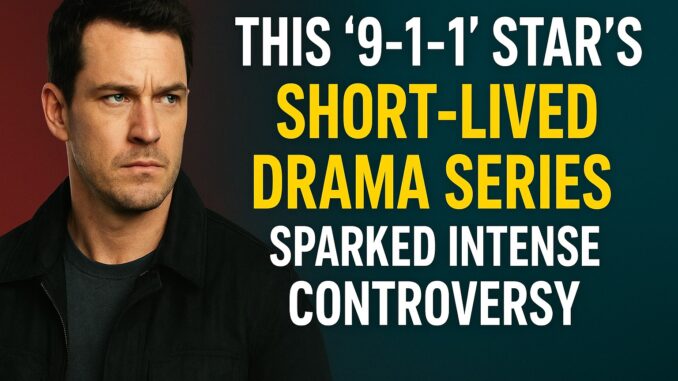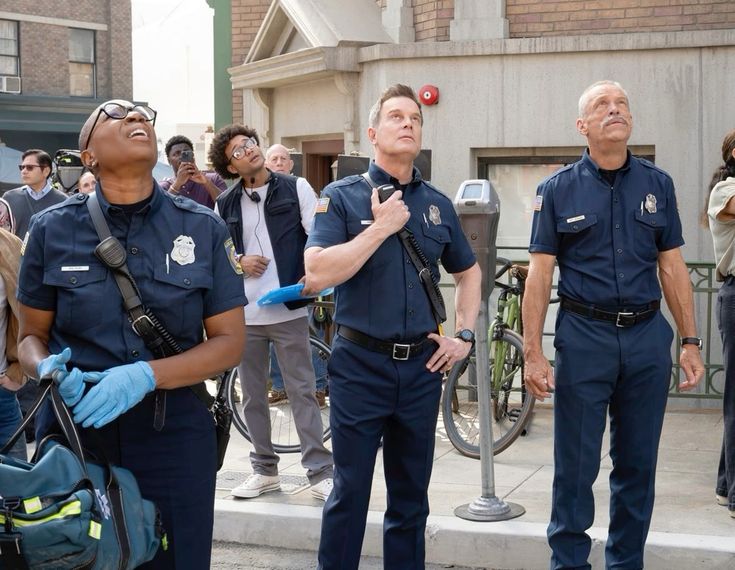
When Drama Starts Before the Cameras Roll
Long before Jennifer Love Hewitt became a fan-favorite on 9-1-1, she starred in one of Lifetime’s most controversial scripted dramas, and the controversy began before the first episode even aired. The Client List, which ran for two seasons starting in 2012, originated as a hit Lifetime movie that earned Hewitt a Golden Globe nomination and sparked the network’s interest in expanding the story. Hewitt herself championed the idea, reimagining the story around a struggling massage therapist who turns to selling “extras” when financial desperation leaves her out of options. However, that premise alone was enough to ignite a wave of controversy the moment the series was announced.
Every once in a while, a TV series causes a stir not because of its storyline or cast, but because of the controversy that surrounds it before it ever reaches the screen. That was exactly the fate of a short-lived drama series featuring one of the stars from the hit show “9-1-1.”
The show promised high stakes, emotional depth, and bold storytelling. Instead, it became a whirlwind of criticism, debate, and cultural backlash long before the premiere date—even affecting the actor’s fanbase and the future of the project. So, what exactly happened? And why did this show ignite such a heated reaction early on? Let’s dive deeper.
The Buzz Around the ‘9-1-1’ Star’s New Role
Fans were excited to see a beloved “9-1-1” cast member take on a fresh project. Whenever a breakout star steps into a new series, the curiosity and hype build instantly. This project was no exception.
But instead of enthusiasm, the early announcements triggered controversy. It all began with the theme of the series—a sensitive topic that audiences were quick to critique.
The Premise That Triggered the Controversy
The biggest issue? The storyline.
A Polarizing Plot
The show focused on a socially charged narrative involving moral dilemmas, institutional failures, and culturally sensitive themes. Viewers hadn’t seen even a trailer, but early descriptions and leaked elements caused tension fast.
Social Media’s Early Verdict
As with many things in the digital age, outraged tweets spread faster than facts.
People debated:
-
Was the show exploiting real-life trauma?
-
Was the story told from the wrong perspective?
-
Was it too soon to tackle this subject matter?
-
Did the producers misunderstand the cultural climate?
Before the network could even release promotional material, the show had already been labeled “problematic.”
The Pressure on the ‘9-1-1’ Actor
While the series was overshadowed by controversy, the star in question also faced major scrutiny.
A Reputation on the Line
Fans wondered why a respected and popular “9-1-1” cast member would sign onto such a divisive project.
Some accused them of being insensitive. Others defended their artistic freedom. The actor’s social media became a battleground of comments, hot takes, and assumptions.
The Actor Speaks Out
When the backlash became impossible to ignore, the star addressed the situation:
-
They emphasized the importance of storytelling.
-
They clarified misinformation.
-
They expressed pride in the project—despite the criticism.
But for some viewers, the damage had already been done.
Behind-the-Scenes Panic
Networks invest millions into new dramas, and when things get messy before release, executives panic.
Rewrites, Reshoots, and Rebranding
Insiders suggested that producers rushed to soften controversial themes, rewrite problematic scenes, and shift the marketing strategy entirely.
Internal Disagreements
Creative teams reportedly clashed over how to handle the growing criticism. Some pushed to move forward boldly. Others wanted to delay the show until the controversy cooled.
But the public’s opinion doesn’t always wait.
The Network’s Unusual Decision
Most controversial shows wait until after airing to deal with backlash. This one didn’t get that chance.
Quiet Cancellation
Because of the mounting negative attention, the network made an unprecedented choice—they scrapped the promotional campaign entirely and quietly pulled back production.
The drama series faded before it even had a full season run. Some episodes were filmed, but the project eventually dissolved.
Why the Show’s Themes Hit a Nerve
The backlash wasn’t random—it highlighted deeper cultural anxieties.
Audiences Are Less Patient With Misrepresentation
Modern viewers demand authenticity, respect, and nuance—especially when dealing with sensitive topics. The show’s early descriptions made it seem exploitative rather than thoughtful.
Timing Matters
When a series releases during a tense cultural moment, even a well-intentioned storyline can feel inappropriate.
The Fear of Trauma Exploitation
Many critics argued that the show seemed like it might profit off trauma without offering genuine insight or representation.
What This Means for the Actor’s Career
Even though the series was canceled, people still talk about how it affected the “9-1-1” star.
A Temporary Fallout
Some fans distanced themselves from the actor. Others saw the backlash as unfair and rallied behind them.
A Long-Term Win?
Interestingly, the controversy didn’t destroy the star’s career. If anything, it highlighted their willingness to take risks and explore meaningful subjects—even if the project never came to life.

Lessons Hollywood Learned
This drama series became a cautionary tale.
Hollywood Must Respect Sensitive Topics
Audiences expect responsible storytelling.
Stars Need Better Project Vetting
A single project can alter public perception instantly.
Marketing Matters
The way a show is described can create controversy even if the final product tells a balanced story.
Fans Still Want Answers
Years later, viewers still ask:
-
What would the show have been like?
-
Did the controversy ruin something promising?
-
Was it unfairly judged?
Some fans even campaign for the series to be released, just to see what the hype (and criticism) was about.
Could the Show Ever Return?
In the age of streaming, canceled series sometimes get revived. But for this one?
It’s Complicated
The combination of:
-
public backlash
-
network hesitation
-
unfinished episodes
-
and cultural sensitivity
makes a revival extremely unlikely.
The Bigger Picture — Why This Story Still Matters
The saga reflects a shifting era in entertainment—where audiences hold creators accountable before anything ever goes live. Actors must navigate this landscape carefully, and studios must anticipate social media reactions like never before.
This “9-1-1” star’s short-lived series might never air, but the conversation it sparked continues to influence how new shows are developed.
Conclusion
This short-lived drama series stands as one of TV’s most controversial projects—not because of what it showed, but because of what people believed it would show. The “9-1-1” star at the center faced backlash, support, scrutiny, and admiration all at once. And although the series never aired, its impact echoes across Hollywood.
The truth is simple: storytelling has power, and when that power is mishandled—or even perceived as mishandled—audiences respond loudly.
But in a world driven by viral reactions and instantaneous judgments, one question remains:
What masterpieces (or disasters) are we missing because they never get the chance to be seen?